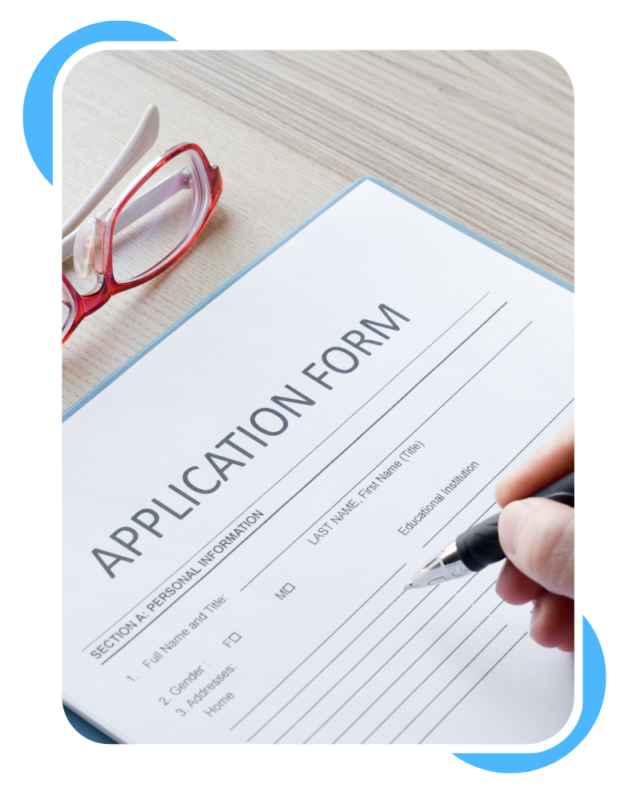
The International English Language Testing System, commonly known as IELTS, is a standardized test designed to assess the English language proficiency of non-native speakers. It is accepted as proof of language proficiency by many universities, colleges, and organizations worldwide. The ownership and management of the IELTS exam are shared among three organizations, namely the British Council, IDP: IELTS Australia, and Cambridge Assessment English. The test has two versions, namely the Academic and General Training versions. The Academic version is intended for those who want to pursue higher education in an English-speaking country, while the General Training version is suitable for those who wish to migrate to an English-speaking country for work or displacement purposes. The test evaluates the candidate’s skills in four areas: listening, reading, writing, and speaking. The test duration is 2 hours and 45 minutes, and it is recognized in more than 140 countries worldwide.

An important Date & Time for IELTS 2023-2024 Exam
For those planning to take the IELTS exam in 2023-2024, it is essential to be aware of the test dates and registration deadlines. The IELTS exam is held throughout the year, with multiple test dates available each month. The exact test dates and registration deadlines vary depending on the location and test center. It is recommended to register for the test well in advance to secure a preferred test date and location.
| Month (2023 – 2024) | IELTS Test Date |
|---|---|
| January | Saturday, 7 January 2023 – 2024, Academic and General TrainingSaturday, 14 January 2023 – 2024, Academic onlyThursday, 19 January 2023 – 2024, Academic and General TrainingSaturday, 28 January 2023 – 2024, Academic only |
| February | Saturday, 4 February 2023 – 2024, Academic onlySaturday, 11 February 2023 – 2024, Academic and General TrainingThursday, 16 February 2023 – 2024, Academic onlySaturday, 25 February 2023 – 2024, Academic and General Training |
| March | Thursday, 2 March 2023 – 2024, Academic onlySaturday, 11 March 2023 – 2024, Academic and General TrainingSaturday, 18 March 2023 – 2024, Academic onlySaturday, 25 March 2023 – 2024, Academic and General Training |
| April | Saturday, 1 April 2023 – 2024, Academic and General TrainingSaturday, 15 April 2023 – 2024, Academic onlyThursday, 20 April 2023 – 2024, Academic onlySaturday, 29 April 2023 – 2024, Academic and General Training |
| May | Saturday, 6 May 2023 – 2024, Academic onlyThursday, 11 May 2023 – 2024, Academic and General TrainingSaturday, 20 May 2023 – 2024, Academic onlySaturday, 27 May 2023 – 2024, Academic and General Training |
| June | Saturday, 3 June 2023 – 2024, Academic onlySaturday, 10 June 2023 – 2024, Academic and General TrainingThursday, 15 June 2023 – 2024, Academic onlySaturday, 24 June 2023 – 2024, Academic and General Training |
| July | Thursday, 6 July 2023 – 2024, Academic onlySaturday, 15 July 2023 – 2024, Academic onlySaturday, 22 July 2023 – 2024, Academic and General TrainingSaturday, 29 July 2023 – 2024, Academic and General Training |
| August | Saturday, 5 August 2023 – 2024, Academic onlyThursday, 10 August 2023 – 2024, Academic and General TrainingSaturday, 19 August 2023 – 2024, Academic onlySaturday, 26 August 2023 – 2024, Academic and General Training |
| September | Saturday, 2 September 2023 – 2024, Academic onlySaturday, 9 September 2023 – 2024, Academic and General TrainingThursday, 14 September 2023 – 2024, Academic onlySaturday, 23 September 2023 – 2024, Academic and General Training |
| October | Saturday, 7 October 2023 – 2024, Academic and General TrainingThursday, 12 October 2023 – 2024, Academic onlySaturday, 21 October 2023 – 2024, Academic onlySaturday, 28 October 2023 – 2024, Academic and General Training |
| November | Saturday, 4 November 2023 – 2024, Academic onlyThursday, 9 November 2023 – 2024, Academic and General TrainingSaturday, 18 November 2023 – 2024, Academic onlySaturday, 25 November 2023 – 2024, Academic and General Training |
| December | Saturday, 2 December 2023 – 2024, Academic and General TrainingThursday, 7 December 2023 – 2024, Academic onlySaturday, 9 December 2023 – 2024, Academic onlySaturday, 16 December 2023 – 2024, Academic and General Training |

IELTS Exam Overview
The International English Language Testing System (IELTS) is a standardized test designed to assess the English language proficiency of non-native speakers. It is recognized worldwide and accepted as proof of language proficiency by many universities, colleges, and organizations. The test evaluates the candidate’s skills in four areas: listening, reading, writing, and speaking. The IELTS exam is available in two versions: Academic and General Training. The Academic version is intended for those who wish to pursue higher education in English-speaking countries, while the General Training version is suitable for those who wish to migrate to English-speaking countries for work or immigration purposes. The test duration is 2 hours and 45 minutes, and it is recognized in more than 140 countries globally. A high score in the IELTS exam can significantly enhance opportunities for education, work, and immigration.
Eligibility Criteria
To take the IELTS exam, there are no specific eligibility criteria based on your occupation or field of study. Anyone who wishes to demonstrate their proficiency in the English language can take the IELTS exam. However, it is recommended that test-takers have a minimum age of 16 years. Additionally, it is essential to check the English language requirements of the organization or institution to which the test scores will be submitted. Some organizations may require a minimum score to meet their language proficiency standards.
IELTS Eligibility for Canada
| University | IELTS for Undergraduate | IELTS for Postgraduate |
|---|---|---|
| University of Toronto | 6.5 | 7 |
| University of British Columbia | 6.5 | 6.5 |
| McGill University | 6.5 | 6.5 |
| McMaster University | 6.5 | 6.5 |
| University of Alberta | 6.5 | 6.5 |
IELTS Eligibility for the USA
| University | IELTS for Undergraduate | IELTS for Postgraduate |
|---|---|---|
| Massachusetts Institute of Technology | 7.0 | 7.0 |
| California Institute of Technology | 7.0 | 7.0 |
| Harvard University | 7.0 | 7.0 |
| Princeton University | 7.0 | 7.0 |
| Yale University | 7.0 | 7.0 |
IELTS Eligibility for the UK
| University | IELTS for Undergraduate | IELTS for Postgraduate |
|---|---|---|
| University of Oxford | 7 | 7.5 |
| University of Cambridge | 7 | 7 |
| Imperial College London | 7 | 7 |
| University College London | 6.5 | 6.5 |
| University of Edinburgh | 6.5 | 6.5 |
IELTS Eligibility for Australia
| University | IELTS for Undergraduate | IELTS for Postgraduate |
|---|---|---|
| Australian National University | 6.5 | 6.5 |
| University of Melbourne | 6.5 | 6.5 |
| The University of Sydney | 6.5 | 6.5 |
| University of New South Wales | 6 | 6 |
| Monash University | 6.5 | 6.5 |
| University of Western Australia | 6.5 | 6.5 |
IELTS Eligibility for New Zealand
| Universities | IELTS for Undergraduate | IELTS for Postgraduate |
|---|---|---|
| Massey University | 6 | 6.5 |
| University of Auckland | 6 | 6.5 |
| University of Otago | 6 | 6.5 |
| Victoria University of Wellington | 6.5 | 6.5 |
| University of Waikato | 6.5 | 6.5 |
Exam Pattern
The IELTS exam consists of four sections – Listening, Reading, Writing, and Speaking – and is designed to assess an individual’s proficiency in the English language. The Listening and Reading sections are objective in nature and assess the candidate’s ability to comprehend spoken and written English. The Writing and Speaking sections are subjective in nature and assess the candidate’s ability to express their thoughts and ideas effectively in written and spoken English. The exam is available in two formats – Academic and General Training – and candidates can choose the format that best suits their needs.
| Particulars | Details |
|---|---|
| Examination Mode | Computer-Based Test (Online) |
| Duration | 3 Hours |
| Number of Papers in GATE 2024 | 29 Papers |
| Section | General Aptitude (GA)Candidate Selected Subject |
| Type of Questions | Multiple Choice Questions (MCQs)Multiple Select Questions (MSQs)Numerical Answer Type (NAT) Questions |
| Design of Questions | The questions are designed to test the listed abilitiesApplicationAnalysisComprehensionRecallSynthesis |
| Number of Questions | 65 Questions (including 10 questions from General Aptitude) |
| Distribution of Questions in all Papers except AR, CY, EY, GG, MA, PH, and XL | Engineering Mathematics – 13 MarksSubject Questions – 72 MarksGeneral Aptitude – 15 Marks |
| Distribution of Questions in AR, CY, EY, GG, MA, PH, XH, and XL | Questions from Subject Concerned – 85 MarksGeneral Aptitude – 15 Marks |
| Total Marks | 100 Marks |
| Marking Scheme | All of the questions will be worth 1 or 2 marks |
| GATE Negative Marking | Two types of MCQs:MCQs – 1 mark for each correct answer; 1/3 mark will be deducted for every wrong answer.MCQs – 2 marks for each correct answer; 2/3 marks will be deducted for every incorrect response. There are no negative marking for Numerical Answer Type (NAT) questionsNO negative marking for MSQ & NAT. |
Syllabus
The IELTS exam syllabus typically includes four main sections: Listening, Reading, Writing, and Speaking. Both the Academic and General Training versions of the IELTS exam feature Listening and Speaking sections that are identical, but the Reading and Writing sections differ somewhat between the two versions. . The exam assesses your English language proficiency across a range of skills, including your ability to understand and use complex grammar and vocabulary, comprehend written and spoken texts, and express your own thoughts and opinions effectively in both written and spoken form.
Sure, here’s the corrected version:
Listening
Recording 1: A casual conversation between two individuals in a social setting.
Recording 2: A single speaker delivering a speech on a topic related to daily life, such as local government.
Recording 3: A conversation between a maximum of four people in an educational or training environment.
Recording 4: A monologue on an academic subject, such as a lecture in a university setting.
Speaking
Task 1 – you will answer general questions about familiar topics, including family, work, studies, home, and interests. This part typically lasts between 4 to 5 minutes.
Part 2 – You will pick a card with a topic and talk about it for up to two minutes. You will have one minute to prepare, followed by 2-3 questions from the examiner on the same topic.
Part 3 – More questions will be asked on the same topic as in Task 2. During these sections, you’ll have the chance to delve into more abstract concepts and topics, giving you the opportunity to explore and discuss a range of ideas and issues in greater depth.
Reading (Academic and General Training)
Task Type 1 – Multiple Choice: You will be asked to complete a sentence by choosing the correct option.
Task Type 2 – Identifying Information: You will have to answer the question in ‘true’, ‘false’, or ‘not given.’
Task Type 3 – Identifying Writer’s Views/Claims: You will be asked to answer the questions in ‘yes’, ‘no’, or ‘not given.’
Task Type 4 – Matching Information: You will be required to match specific details provided in the form of examples, reasons, descriptions, comparisons, summaries, or explanations.
Writing (Academic)
Task 1: You will need to present factual information or figures from one or more graphs, charts, or tables on a related topic. Alternatively, you may be provided with a diagram of a machine, device, or process and asked to explain its functioning.
Task 2: You will be given a topic to write about in an academic or semi-formal/neutral style, and you will be expected to express your ideas clearly and coherently.
Writing (General Training)
Task 1 – You will be given a scenario and asked to compose a letter either requesting information or explaining the situation. The tone of the letter may be personal, semi-formal, or formal.
Task 2 – You will be prompted to write an essay that addresses a particular point of view, argument, or problem.

How to Prepare for IELTS Exam?
Preparing for the IELTS exam can be a challenging task, but there are a number of strategies you can use to help maximize your chances of success. Some effective ways to prepare for the exam include familiarizing yourself with the test format and structure, practicing your language skills through reading, writing, and conversation, and taking advantage of study materials such as practice exams, sample questions, and online resources. Additionally, it can be helpful to set specific goals and timelines for your study, and to seek feedback and guidance from experienced teachers or tutors as you work to improve your language proficiency.
Please familiarize yourself with the exam format
It’s essential to become familiar with the structure of the IELTS exam, which includes four sections: Listening, Reading, Writing, and Speaking. Ensure you understand each section’s length, the questions you’ll face, and what to expect in each area. It will help you feel more confident and prepared on exam day.
Build your English language skills
The IELTS exam measures your English language proficiency, so it’s essential to have a solid foundation in English grammar, vocabulary, and pronunciation—practice reading, writing, and speaking in English as much as possible.
Practice, practice, practice
Practice is critical to success on the IELTS exam. Take practice tests and timed sessions to build your stamina and familiarise yourself with the exam format. It will also help you identify your strengths and weaknesses, so you can focus your study efforts where needed.
Focus on your weaknesses
If you struggle with a particular exam section, focus your study efforts on that section. For example, if you work with the Listening section, practice listening to English-language podcasts, news broadcasts, and TV shows.
Get feedback
Find a tutor or language partner who can provide feedback on your English language skills and help you identify areas for improvement. You can also join an IELTS preparation course, giving you access to expert instructors and practice materials.
By following these tips, you can prepare effectively for the IELTS exam and achieve your desired score. Good luck!

Tips to Crack the IELTS Exam
Here are some tips to help you crack the IELTS exam:
Understand the Format of the Test
The IELTS test is divided into four distinct sections, which include Listening, Reading, Writing, and Speaking. It is important to understand the format of each section, the types of questions that are asked and the time allotted for each section.
Improve your English Language Skills
The IELTS exam is designed to test your English language skills. Hence, it is important to work on your reading, writing, listening and speaking skills. Read newspapers, books, and online articles in English, practice writing essays and emails, listen to English podcasts, and speak with native English speakers to improve your skills.
Practice Regularly
Regular practice is crucial for achieving success in the IELTS exam. Taking practice tests will help you become familiar with the test format and question types. Additionally, practicing under timed conditions will not only improve your speed and accuracy but also help you manage your time effectively during the actual exam.
Learn Time Management
Mastering time management is essential for success in the IELTS exam.. You need to complete each section within the given time frame. Learn to manage your time effectively by setting time limits for each section and sticking to them.
Learn Strategies to Tackle Different Question Types:
The IELTS exam has different question types in each section. Learn strategies to tackle each type of question. For example, in the reading section, learn to skim and scan for information, and in the speaking section, learn to organize your thoughts and speak fluently.
Familiarize Yourself with the Test Center
Visit the test center before the exam day to familiarize yourself with the location, facilities, and rules and regulations.
Stay Calm and Confident
On the day of the exam, it’s important to stay composed and self-assured. Take deep breaths and try not to let anxiety take over. Have faith in yourself and your skills, and trust that you have prepared well for the exam.

How To Apply for Upcoming IELTS Exams?
To apply for the IELTS exam, you can follow the steps below:
- Go to the official website of the IELTS test center in your country. You can find the list of test centers on the IELTS website.
- Register for an account on the website and fill in your personal details.
- Choose the test date and location that is convenient for you. Make sure to check the available dates and fees for the test.
- Make the payment for the test fee through the website or in person at the test center.
- Upload a clear and valid ID proof, which should be the same ID that you will be taking to the test center on the day of the exam.
- Once your application is processed, you will receive a confirmation email with the details of the test date, time, and location.
- On the day of the exam, make sure to arrive at the test center on time and bring your ID proof along with you.
Conclusion | IELTS Exam 2023
In conclusion, taking the IELTS exam is an important step for those who want to study or work in an English-speaking environment. It requires preparation, practice, and a good understanding of the exam format and content. To succeed in the exam, candidates should focus on improving their English language skills in all four areas: listening, reading, writing, and speaking. It is also important to manage time effectively during the exam and to stay calm and confident throughout. With the right approach and dedication, anyone can achieve a good score on the IELTS exam and reach their academic or professional goals.

FAQs (Frequently Asked Questions) Related to the IELTS Exam
Here are some frequently asked questions about the IELTS exam and their answers.
The International English Language Testing System (IELTS) is an internationally allow English language proficiency exam. It is designed to assess the language ability of non-native speakers of English who want to study or work in English-speaking countries.
The IELTS exam is comprised of four components: Listening, Reading, Writing, and Speaking.
The IELTS exam result is valid for two years from the date of the test.
The IELTS exam is number on a scale of 0 to 9. Each section of the exam is scored individually, and then an overall band score is calculated by taking the average of the four individual section scores.
A good score on the IELTS exam depends on the requirements of the institution or organization that the candidate is applying to. In general, a score of 6.5 or above is considered good and is accepted by most universities and employers.
Candidates can prepare for the IELTS exam by taking practice tests, studying English language textbooks, and enrolling in an IELTS preparation course. It is also recommended to practice English language skills regularly by reading, writing, listening, and speaking in English.
Yes, the IELTS exam can be taken online through the IELTS Indicator test. However, it is important to note that the IELTS Indicator test is not accepted by all institutions and organizations, and candidates should check the specific requirements before taking the online test.
Candidates can typically receive their IELTS exam results within 13 days after the test date.
